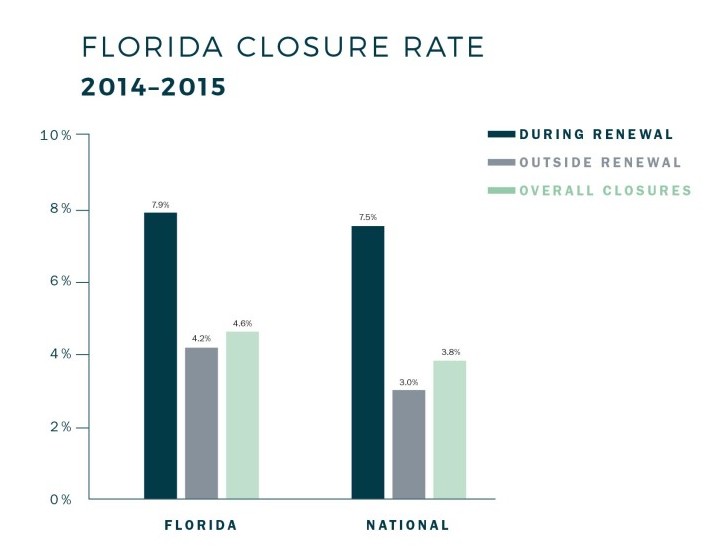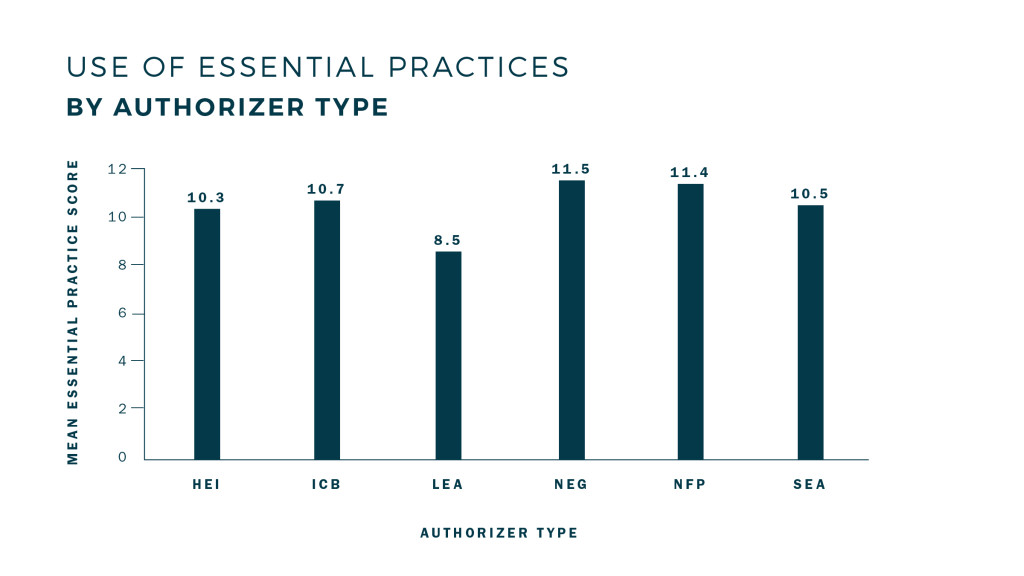
Last school year, Florida charter schools were more likely to close, and more likely to close early, than the national average.
Some Florida school districts are exemplars for charter school oversight, and have almost all of the 12 “essential practices” identified by the National Association for Charter School Authorizers (NACSA) in place.
But others, typically smaller districts, don’t use expert panels to vet charter school applications, prepare annual reports on how their charters perform, or take other steps the national group recommends to promote better charter school oversight.
These facts emerge from a new national survey that NACSA released last week. They should bring some light to the overheated debate about over who oversees charter schools in Florida, and who might have that authority in the future.
The Florida House this year has considered a state constitutional amendment that would create a statewide body with the power to sponsor charter schools. Right now, with the exception of a few charters overseen by universities, charter school authorizing is the exclusive province of school districts.
Groups like the League of Women Voters and editorial boards at several newspapers have come out swinging against the proposal. The Tampa Bay Times/Miami Herald Tallahassee bureau reported last week:
“It would be a major change to the Florida Constitution, disregarding school districts’ authority,” league President Pamela Goodman said, during a league rally on the steps of the Old Capitol in Tallahassee.
“It’s another example of the continued push to privatize public schools and establish a parallel system that diverts money to for-profit corporations,” Goodman said, calling it an “egregious attack on public schools.”
The measure, HJR 759, will have a hard time passing this year. It’s ready for consideration on the House floor, but has not yet been heard in the Senate with three weeks remaining in the legislative session. Barring a dramatic procedural maneuver, it won’t be.
Still, the idea likely isn’t going away. It’s been pursued for nearly a decade as a way to stop bad charters from opening — and reduce roadblocks for good ones.
School districts vary widely in their charter school oversight capability. In general, they are less likely than other entities, like universities or statewide boards, to take the steps NACSA recommends to ensure charters are well-screened and properly supervised.

In a press release accompanying the report, M. Karega Rausch, NACSA’s vice president of research and evaluation. said districts are responsible for a growing share of charter school authorizers nationally. Depending on how well they carry out their responsibilities, this “could be troublesome or beneficial for students across the country.”
“We know many districts have not developed the capacity to effectively oversee charter schools in addition to their other duties,” Rausch said. “However, we also know there can be great outcomes when district officials work together to manage a great portfolio of both traditional and charter schools to meet community needs. Denver Public Schools is one strong example of this kind of partnership.”
Some large Florida districts, like Miami-Dade, Hillsborough and Palm Beach are highlighted in the report for putting all or most of the group’s essential practices in place. But others — from large, urban Duval County to rural Columbia County, which currently oversees just one charter school — employ roughly half of practices NACSA considers essential.
Supporters have argued a statewide authorizer would have the know-how to oversee charters more effectively. It could help some districts improve, while lightening the load for others that might lack the staff or the resources to oversee charters.
There are still legitimate questions about school board authority and local control. And state-level charter school boards can have their share of problems. But the idea of a statewide authorizer is about more than just an end-run around districts. It could ultimately help them do their jobs more effectively.


